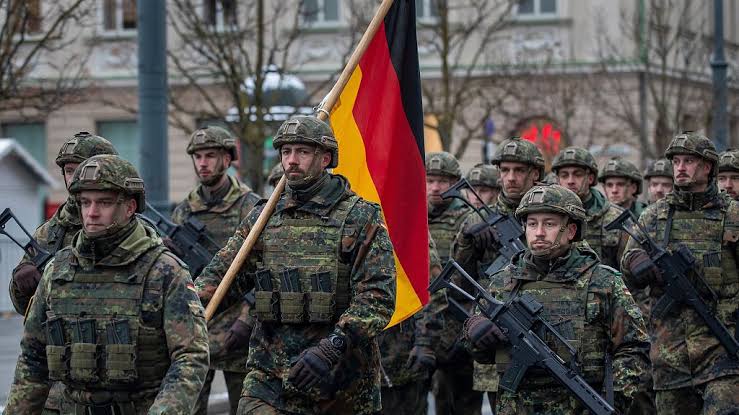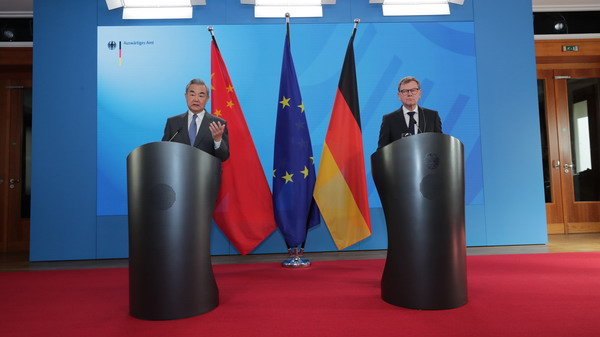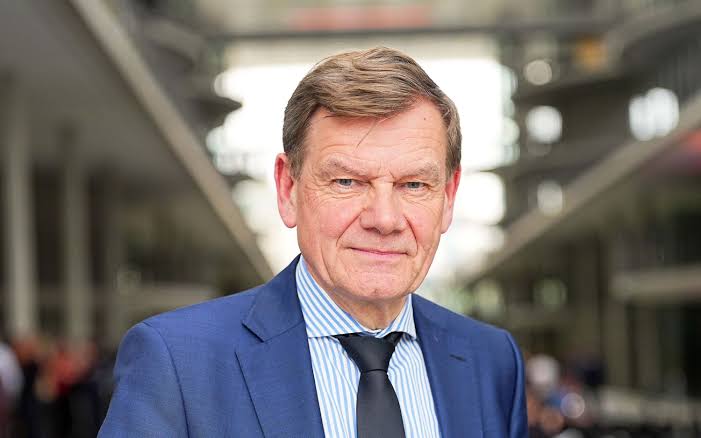When the Ukrainian war first beckoned, Germany was initially wary of offering Kyiv direct military supplies
Berlin, November 15, 2023, The Europe Today: With Russia and Ukraine still locked in combat after nearly two years and a major Israeli-Palestinian conflict underway, the European Union and NATO are feeling their way into a chaotic new world security order – and Europe’s largest economy is shaking up decades-old ideas on what its military is actually for.
When the Ukrainian war first beckoned, Germany was initially wary of offering Kyiv direct military supplies. But shortly after Russia invaded, Chancellor Olaf Scholz recast Germany’s moral obligations to help resist Russian aggression in dramatic terms.
In his so-called Zeitenzwende or “turning point” address to the Bundestag, he decribed “Putin’s war” in Ukraine as one that risked a return to the dark days of Europe before the 1940s, alluding to Germany’s history as he pressed parliamentarians to support the shipment of weapons and supplies to a non-EU, non-NATO ally.
“Many of us still remember our parents’ or grandparents’ tales of war,” he said. “And for younger people it is almost inconceivable – war in Europe. Many of them are giving voice to their horror…
“The issue at the heart of this is whether power is allowed to prevail over the law. Whether we permit Putin to turn back the clock to the nineteenth century and the age of the great powers. Or whether we have it in us to keep warmongers like Putin in check.
“That requires strength of our own.”
The speech was a major turning point not just in the Ukrainian conflict, but in the German government’s way of discussing military strategy, which given the country’s history until 1945 has long been a difficult subject. Until recent years, contributing to world security via NATO rather than unilaterally increasing German military power has proven sufficient to avoid reopening awkward discussions about what a “strong” Germany might mean for Europe.
Since the Zeitenzwende speech, Germany’s contributions to Ukraine have been at times halting, with complaints from Kyiv and other European partners that Berlin is not moving fast enough to deliver on its promises.
But with the Ukrainians struggling to push Russia back on their crucial southeastern front, Germany is trying to push things further. And Scholz’s defence minister, Boris Pistorius, is now talking about Germany’s defence posture in terms unlike anything heard since the country was reunified in 1990.
Writing in newspaper Tagesspiel recently, Pistorius called for “fundamental changes” to the German army, the Bundeswehr, which he said needs major structural reform “to be effective and fit for war in the future”.
That phrasing is starkly different from the relatively tentative way German governments have addressed military strength in recent decades – and in his final paragraph, Pistorius wrote in even more strongly unilateral terms that will have made many thinkers and policymakers in Berlin uncomfortable.
“We need a change of mentality not only in the Bundeswehr, but also in politics and society,” he declared. “At stake is the security of our country, and thus the foundation for social coexistence, progress and economic growth. As a state and a society, we need to be able to defend ourselves and be resilient so that we can continue to live in peace, freedom and security in the future.”
According to German security policy expert Minna Ålander, based at the Finnish Institute of International Affairs, Pistorius’s words have been met with a degree of astonishment, as well as pushback from the left of his party, the Social Democrats. Many of his party colleagues share a deep aversion to the normalisation of war, and are alarmed that Pistorius is ready to talk in these terms.
However, she also told Euronews that the structural problems facing the Bundeswehr are simply too serious for the government to avoid given the promises it’s already made.
“There was a sense of waning impetus after the summer, but Germany is under a lot of pressure to deliver on the pledge to send a 4,000-strong brigade to Lithuania, as Pistorius promised,” she said.














